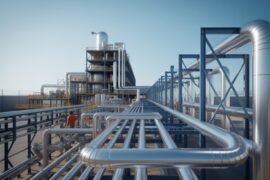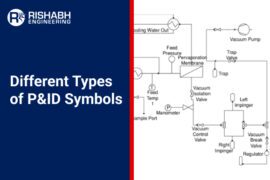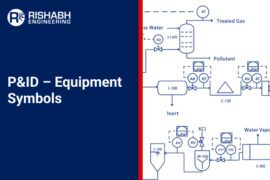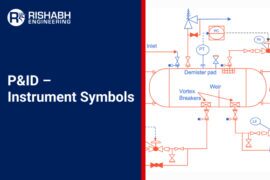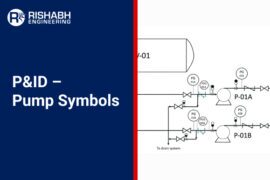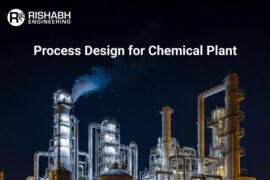If you are trying to determine how to choose a piping design partner who truly adds value, here are the essential criteria. Plus, how Rishabh Engineering checks the box on each one.
Understanding Different P&ID Symbols for Industrial Processes
In the complex world of process industries, effective communication and documentation are crucial for ensuring safety, efficiency, and successful operation. The Piping and Instrumentation Diagram (P&ID) is vital in this domain. With this article, we will explore what is P&ID, its significance across diverse industries, the symbols employed, and a comprehensive guide on crafting them.
P&ID Equipment Symbols: Essential Components of System Design
In this blog, we’ll explore the frequently used equipment P&ID symbols, while explaining their function, significance, and how they contribute to effective system design.
Understanding P&ID Instrumentation Symbols
This blog will dive deep into P&ID instrument symbols, explaining what they are, their importance, components, the types of symbols used, and how to interpret them and how Rishabh Engineering integrates these standards to ensure efficient, safe, and compliant designs for process systems.
P&ID Symbols For Pumps: Process Engineers’ Guide
This blog takes a deep dive into P&ID pump symbols — what they are, how they are used, why they are important, how to read and interpret them along with guidelines and best practices for creation. For engineers, designers, and operators alike, understanding pump symbols is critical to both interpreting and developing process designs that are safe, functional, and compliant with industry standards.
Process Engineering in Manufacturing Industry
In this blog, we’ll cover specifics about process engineering in manufacturing industry, its importance, key services offered under this focus, applications & use cases, methodologies & tools, challenges encountered and how Rishabh Engineering team can help with real life case studies.
Floating, Production, Storage & Offloading Essentials
In this blog, we’ll discuss the specifics about What is an FPSO, how does it work, its components, types, advantages & some disadvantages, along with how a multidisciplinary design engineering company can help.
Optimize FPSO Design With Multidisciplinary Engineering
In this blog, we’ll look at engineering design process to develop FPSO packages, considerations, software utilized, potential challenges and how Rishabh Engineering team can assist using real-world examples.
3D Model Review Checklist In Process Industries
3D models have revolutionized how process industries plan, construct, and maintain their facilities, from designing complex industrial plants to visualizing intricate equipment layouts. Therefore, in today’s dynamic process industries, 3D modeling technology helps achieve the right precision & efficiency.
Inherently Safer Process Design for Chemical Plants
This blog will explore inherently safer chemical process design concepts, its importance, process strategies, multidisciplinary engineering’s role, safety best practices, methodologies, regulatory standards, challenges, and how Rishabh Engineering enables safety-first best practices of process design for chemical plants.
